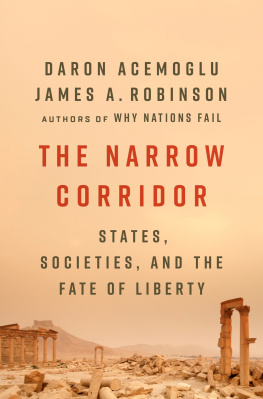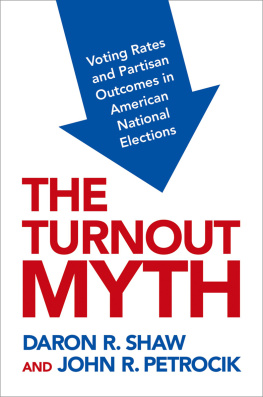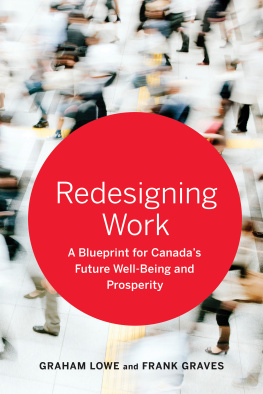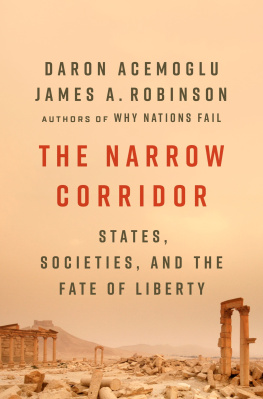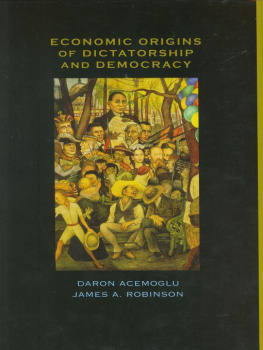Daron Acemoglu - Redesigning AI
Here you can read online Daron Acemoglu - Redesigning AI full text of the book (entire story) in english for free. Download pdf and epub, get meaning, cover and reviews about this ebook. year: 2021, publisher: MIT Press, genre: Politics. Description of the work, (preface) as well as reviews are available. Best literature library LitArk.com created for fans of good reading and offers a wide selection of genres:
Romance novel
Science fiction
Adventure
Detective
Science
History
Home and family
Prose
Art
Politics
Computer
Non-fiction
Religion
Business
Children
Humor
Choose a favorite category and find really read worthwhile books. Enjoy immersion in the world of imagination, feel the emotions of the characters or learn something new for yourself, make an fascinating discovery.

- Book:Redesigning AI
- Author:
- Publisher:MIT Press
- Genre:
- Year:2021
- Rating:4 / 5
- Favourites:Add to favourites
- Your mark:
- 80
- 1
- 2
- 3
- 4
- 5
Redesigning AI: summary, description and annotation
We offer to read an annotation, description, summary or preface (depends on what the author of the book "Redesigning AI" wrote himself). If you haven't found the necessary information about the book — write in the comments, we will try to find it.
Redesigning AI — read online for free the complete book (whole text) full work
Below is the text of the book, divided by pages. System saving the place of the last page read, allows you to conveniently read the book "Redesigning AI" online for free, without having to search again every time where you left off. Put a bookmark, and you can go to the page where you finished reading at any time.
Font size:
Interval:
Bookmark:
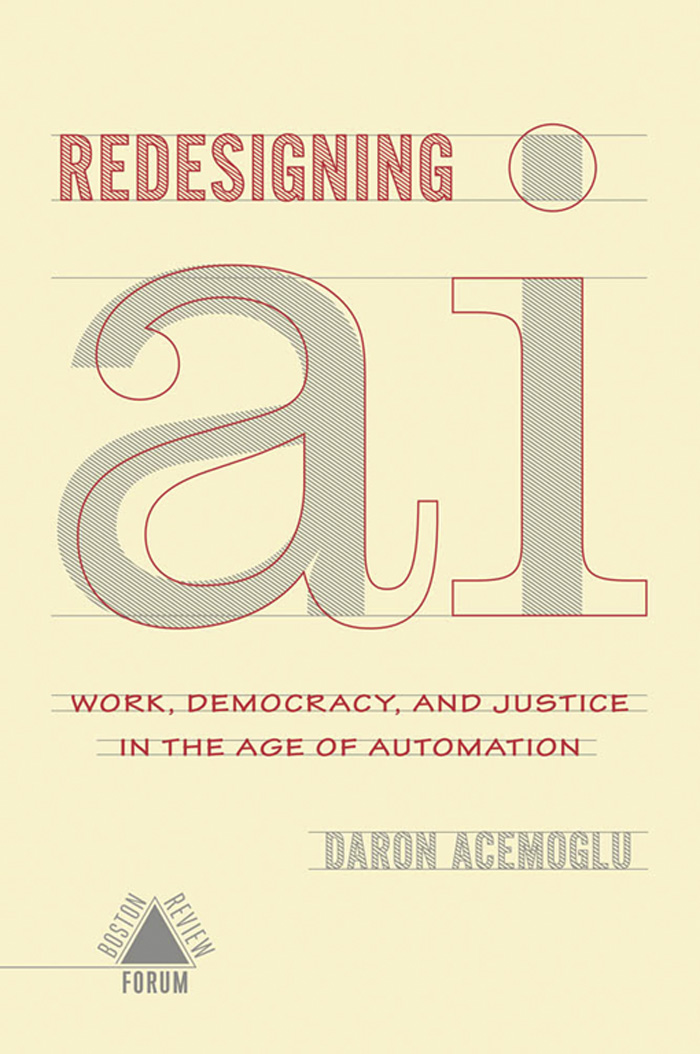
Editors-in-Chief Deborah Chasman & Joshua Cohen
Managing Editor and Arts Editor Adam McGee
Senior Editor Matt Lord
Engagement Editor Rosie Gillies
Manuscript and Production Editor Hannah Liberman
Contributing Editors Adom Getachew, Walter Johnson, Amy Kapczynski, Robin D. G. Kelley, Lenore Palladino
Contributing Arts Editor Ed Pavli & Ivelisse Rodriguez
Editorial Assistants Tadhg Larabee & Jason Vanger
Marketing and Development Manager Dan Manchon
Special Projects Manager Mara Clara Cobo
Finance Manager Anthony DeMusis III
Printer Sheridan PA
Board of Advisors Derek Schrier (Chair), Archon Fung, Deborah Fung, Richard M. Locke, Jeff Mayersohn, Jennifer Moses, Scott Nielsen, Robert Pollin, Rob Reich, Hiram Samel, Kim Malone Scott
Interior Graphic Design Zak Jensen & Alex Camlin
Cover Design Alex Camlin
Redesigning AI is Boston Review Forum 18 (46.2)
Redesigning AI is published in cooperation with the AI and Shared Prosperity Initiative of the Partnership on AI, a nonprofit working across industry, academia, and civil society to explore the social implications of AI and foster broad, equitable benefit from its applications. For more info visit: partnershiponai.org/shared-prosperity
Nichola Lowe's essay is adapted from Putting Skill to Work: How to Create Good Jobs in Uncertain Times. Copyright 2021 by The MIT Press. Used with permission.
To become a member, visit
bostonreview.net/membership/
For questions about donations and major gifts,
contact Dan Manchon,
For questions about memberships, call 877-406-2443
or email .
Boston Review
PO Box 390568
Cambridge, ma 02139
issn : 0734-2306 / isbn : 978-1-946511-62-1
Authors retain copyright of their own work.
2021, Boston Critic, Inc.
d_r0
Joshua Cohen & Deborah Chasman
our world is increasingly powered by artificial intelligence. The singularity is not here, but sophisticated machine-learning algorithms arerevolutionizing medicine and transport; transforming jobs and markets; reshaping where we eat, who we meet, what we read, and how we learn. At the same time, the promises of AI are increasingly overshadowed by its perils, from unemployment and disinformation to powerful new forms of bias and surveillance.
Leading off a forum that explores these issues, economist Daron Acemoglu argues that the threatsespecially for work and democracyare indeed serious, but the future is not settled. Just as technological development promoted broadly shared gains in the three decades following World War II, so AI can create inclusive prosperity and bolster democratic freedoms. Setting it to that task won't be easy, but it can be achieved through thoughtful government policy, the redirection of professional and industry norms, and robust democratic oversight.
Respondents to Acemoglueconomists, computer scientists, labor activists, and othersbroaden the conversation by debating the role new technology plays in economic inequality, the range of algorithmic harms facing workers and citizens, and the additional steps that can be taken to ensure a just future for AI. Some ask how we can transform the way we design AI to create better jobs for workers. Others urge that we need new participatory methods in research, development, and deployment to address the unfair burdens AI bias has already imposed on vulnerable and marginal populations. Others argue that changes in social norms won't happen until workers have a seat at the table.
Contributions beyond the forum expand the aperture, exploring the impact of new technology on medicine and care work, the importance of workplace training in the AI economy, and the ethical case for not building certain forms of AI in the first place. In Stop Building Bad AI, Annette Zimmermann challenges the belief that something designed badly can later be repaired and improved, an industry-wide version of the Facebook motto to move fast and break things. She questions whether companies will police themselves, and instead calls for new frameworks for determining what kinds of AI are too risky to be designed in the first place.
What emerges from this remarkable mix of perspectives is a deeper understanding of the current challenges of AI and a rich, constructive, morally urgent vision for redirecting its course.
FORUM
Daron Acemoglu
artificial intelligence ( ai ) is not likely to make humans redundant. Nor will it create superintelligence anytime soon. But, like it or not, AI technologies and intelligent systems will make huge advances in the next two decadesrevolutionizing medicine, entertainment, and transport; transforming jobs and markets; enabling many new products and tools; and vastly increasing the amount of information that governments and companies have about individuals. Should we cherish and look forward to these developments, or fear them?
There are reasons to be concerned. Current AI research is too narrowly focused on making advances in a limited set of domains and pays insufficient attention to its disruptive effects on the very fabric of society. If AI technology continues to develop along its current path, it is likely to create social upheaval for at least two reasons. For one, AI will affect the future of jobs. Our current trajectory automates work to an excessive degree while refusing to invest in human productivity; further advances will displace workers and fail to create new opportunities (and, in the process, miss out on AI's full potential to enhance productivity). For another, AI may undermine democracy and individual freedoms.
Each of these directions is alarming, and the two together are ominous. Shared prosperity and democratic political participation do not just critically reinforce each other: they are the two backbones of our modern society. Worse still, the weakening of democracy makes formulating solutions to the adverse labor market and distributional effects of AI much more difficult. These dangers have only multiplied during the COVID-19 crisis. Lockdowns, social distancing, and workers vulnerability to the virus have given an additional boost to the drive for automation, with the majority of U.S. businesses reporting plans for more automation.
None of this is inevitable, however. The direction of AI development is not preordained. It can be altered to increase human productivity, create jobs and shared prosperity, and protect and bolster democratic freedomsif we modify our approach. In order to redirect AI research toward a more productive path, we need to look at AI funding and regulation, the norms and priorities of AI researchers, and the societal oversight guiding these technologies and their applications.
the postwar era witnessed a bewildering array of social and economic changes. Many social scientists in the first half of the twentieth century predicted that modern economies would lead to rising inequality and discontent, ultimately degenerating into various types of authoritarian governments or endless chaos.
The events of the interwar years seemed to confirm these gloomy forecasts. But in postwar Western Europe and North Americaand several other parts of the globe that adopted similar economic and political institutionsthe tide turned. After 1945 industrialized nations came to experience some of their best decades in terms of economic growth and social cohesionwhat the French called
Font size:
Interval:
Bookmark:
Similar books «Redesigning AI»
Look at similar books to Redesigning AI. We have selected literature similar in name and meaning in the hope of providing readers with more options to find new, interesting, not yet read works.
Discussion, reviews of the book Redesigning AI and just readers' own opinions. Leave your comments, write what you think about the work, its meaning or the main characters. Specify what exactly you liked and what you didn't like, and why you think so.

